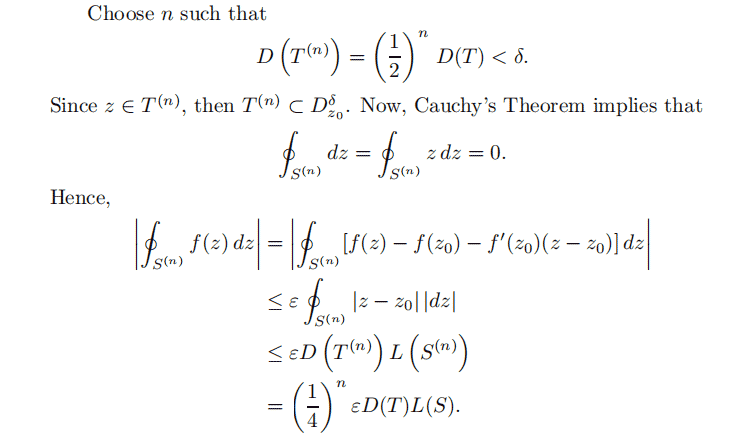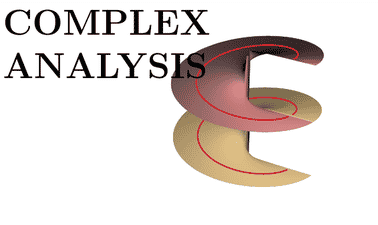这是一份umass麻省大学 MATH 421作业代写的成功案例


PROOF. We suppose that the series of absolute terms
$$
S=\sum_{n=1}^{\infty}\left|z_{n}\right|=\sum_{n=1}^{\infty} \sqrt{x_{n}^{2}+y_{n}^{2}}
$$
is convergent. Hence, it follows from the inequalities
$$
\left|x_{n}\right| \leq \sqrt{x_{n}^{2}+y_{n}^{2}}, \quad\left|y_{n}\right| \leq \sqrt{x_{n}^{2}+y_{n}^{2}}
$$
and the comparison test for series of positive numbers that the series
$$
\sum_{n=1}^{\infty}\left|x_{n}\right|, \quad \sum_{n=1}^{\infty}\left|y_{n}\right|
$$
converge. Therefore, by Theorem 4.1.6, the two series
$$
S_{x}=\sum_{n=1}^{\infty} x_{n}, \quad S_{y}=\sum_{n=1}^{\infty} y_{n}
$$
also converge, that is, the series
$$
\sum_{n=1}^{\infty} z_{n}=\sum_{n=1}^{\infty}\left(x_{n}+i y_{n}\right)=S_{x}+i S_{y}
$$

MMATH 421 COURSE NOTES :
On the other hand, the series
$$
\sum_{n=1}^{\infty}(-1)^{n} \frac{2+3 i}{n}
$$
is only conditionally convergent since the series of absolute terms
$$
\sum_{n=1}^{\infty}\left|\frac{2+3 i}{n}\right|
$$
diverges.
As in the real case, the converse of Theorem 4.1.7 is not true in general. For instance, the series
$$
\sum_{n=1}^{\infty}(-1)^{n} \frac{2+3 i}{n}
$$
is convergent (its real and imaginary parts are conditionally convergent series), but the series
$$
\sum_{n=1}^{\infty} \frac{|2+3 i|}{n}=\sqrt{13} \sum_{n=1}^{\infty} \frac{1}{n}
$$
is divergent.